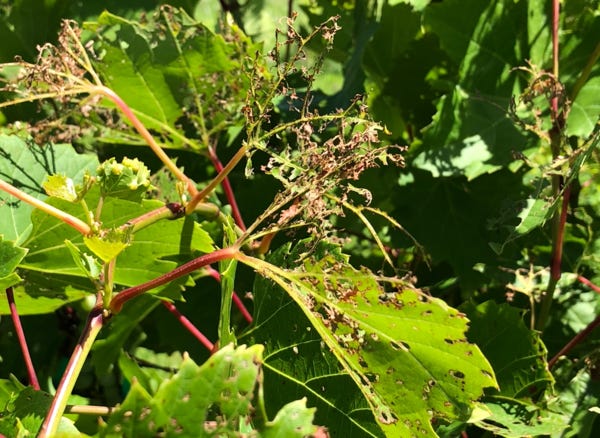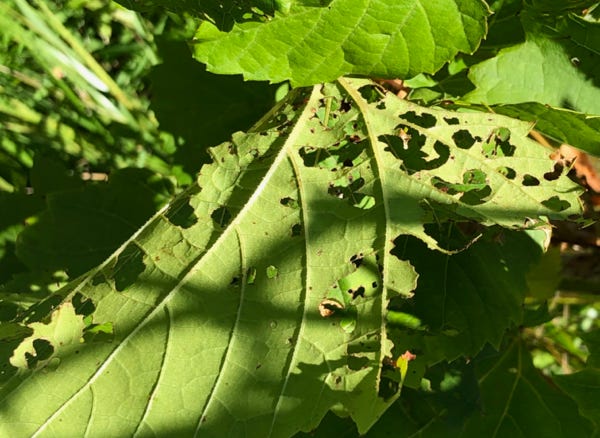The vineyard canopy has been under attack by the invasive species, the Japanese beetle, for the last six seasons. The beetles attack the upper canopy starting from late June through early September. The canopy damage lowers grape quality, harvest yield, and causes uneven ripening of grape bunches.
We have experimented with milky spore along with grass and weed herbicide control to eliminate the vegetation between rows and under vines. Together they have lowered the number of beetles but not enough to improve overall production of grape quality and yield. We still have 20-30% canopy loss plus the canopy regrows first taking nutrition from the grapes.
A traditional tractor uses 25 gallons/acre vs. 2.5 gallons/acre using a drone, which in turn cuts down on environmental damage. Also heavy rains have not allowed a tractor sprayer to be run in the field. Drone spraying is not effected by rain.
Precision agriculture by using a drone sprayer system to control the beetle from overhead using 70% less pesticides, decreasing chemical drift and evaporation with greater adherence of chemicals to leaves and beetles on vines. The objective is to lessen pesticide usage to control the Japanese beetle which in turn will do less environmental damage to soil, water, animal and human life.
Drone use will speed up spraying the acreage, which will lessen the health risk from chemicals on the sprayer operator along with less pesticide drift by using 90% less liquid. Reduction of damage to the vine canopy will also help increase production.
Our grant was awarded as part of NCR-SARE’s Farmer Rancher Grant Program, which is a competitive grants program for farmers and ranchers who want to explore sustainable solutions to problems thought on-farm research, demonstration, and education projects.
Due to pandemic shortages and ever changing government regulations it will take two to three years to receive certification from the FFA to use an aerial drone sprayer. I plan to change to a ground based robotic drone sprayer. Aerial sprayers can reduce the use of chemicals by 70% over conventional broadcast spraying. According to Precision Agriculture Technology for Crop Farming ((Washington StateUniversity), a ground based robotic drone can use 90% less pesticides to achieve similar efficiency to conventional broadcast applications. A ground based robotic sprayer will offer safety for the operator as well as the environment as in my original proposal.

